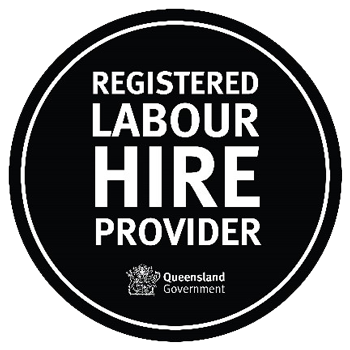What are the reasons behind the success of an organisation? It is primarily cause they hired the best talent out there. Employment firms have ended up being a preferred selection for companies in Australia to simplify their hiring processes and access excellent candidates.
Nevertheless, numerous employers continue to be puzzled concerning how much these agencies fee as well as whether the financial investment is rewarding. In this blog, we’ll dig deep right into the world of employment agency costs in Australia as well as discover the aspects that affect their prices. So, let’s try and understand the expenses involved in working with recruitment firms.
Recognizing The Role Of Employment Agencies
Prior to delving right into the fees, it’s vital to understand the worth of employment agencies offer the table. The main job of Recruitment agencies is to bridge the space between employers and possible talents.
They have accessibility to substantial networks of certified specialists and also use knowledge in sourcing, screening, and selecting prospects that line up with a company’s particular requirements.

Kinds Of Recruitment Agencies
Recruitment companies in Australia can be generally categorised into two types based upon their services and also rates models:
- a) Contingency Recruitment Agencies: Backup firms charge a cost only when they successfully place a candidate with the employer. The charge is generally a percent of the prospect’s annual salary and varies depending on the degree of the setting and also the industry.
- b) Retained Employment Agencies: Retained firms, on the other hand, require an upfront repayment to launch the search procedure. This design is typically made use of for executive-level settings or specific niche functions where the search may be more complicated as well as time-consuming.
Variables Affecting Recruitment Company Charges
The expense of employing through recruitment companies can vary dramatically as a result of numerous crucial aspects:
- a) Placement Level and Wage: Higher-level placements with more considerable responsibilities tend to bring in higher recruitment costs as they call for more specific searches and extensive prospect vetting.
- b) Industry and Demand: The demand for certain abilities and also certifications in certain markets can influence the charges. Shortage of skill in a particular field might result in greater fees.
- c) Exclusivity and Urgency: If a company needs exclusive accessibility to a prospect or needs to fill a position quickly, recruitment companies may adjust their charges appropriately.
- d) Intricacy of the Role: Functions with unique demands or specialised abilities might require additional efforts from the firm, causing higher costs.

Regular Cost Framework
As formerly pointed out, contingency agencies bill a percent of the prospect’s yearly salary, typically varying from 10% to 25%. The typical charge is around 15% to 20%. As an example, if a candidate’s annual wage is $80,000, the company’s fee could be $12,000 to $16,000. Retained firms usually charge in stages. A typical structure is to bill one-third of the charge upfront, one-third at a specified landmark in the hiring procedure, as well as the last 3rd upon successful placement.
Added Solutions as well as Expenses In addition to the standard employment charge, agencies might provide added services that include their very own prices. These solutions consist of:
- a) Background Checks as well as Testing: To guarantee the candidate’s viability and reliability, firms might carry out background checks, which incur extra costs.
- b) Psychometric Evaluations: For certain placements, companies might make use of psychometric evaluations to evaluate a prospect’s character, skills, and also compatibility with the firm culture.
- c) Advertising and Marketing: Some firms might include the cost of promoting the job opening in their cost, while others may bill it separately.
- d) Assurance Duration: Several firms supply an assurance duration throughout which they will change a candidate that leaves the business voluntarily or is terminated for efficiency reasons. The duration of this assurance duration can impact the total fee.

Evaluating The Perks
In spite of the expenses included, using a recruitment agency can provide several benefits:
- a) Time and Resource Savings: Outsourcing the recruitment procedure permits business to concentrate on their core tasks while leaving prospect sourcing as well as evaluating to the professionals.
- b) Access to Leading Ability: Employment firms have substantial networks and can take advantage of easy prospects who could not be actively looking for work.
- c) Proficiency and also Insights: Agencies have extensive sector expertise. Hence, they can aid with important insights when it comes to candidate expectations and salary benchmarks.
Selecting The Right Employment Agency
Now that we have explored the different elements of recruitment firm charges in Australia, it’s vital to recognize just how to choose the right agency for your specific needs. Here are some essential tips to consider:
- a) Research and Reputation: Conduct thorough research to identify reputable recruitment agencies that have a strong track record of successful placements in your industry. Look for testimonials and reviews to gauge their reliability.
- b) Specialization and Expertise: Consider agencies that specialise in your industry or have experience in recruiting for the type of roles you need to fill. Industry-specific agencies can offer a deeper understanding of your requirements and target candidate pool.
- c) Transparent Fee Structure: Ensure that the agency provides a clear and transparent fee structure. Discuss and negotiate the terms of payment upfront to avoid any surprises later on.
- d) Communication and Support: A good recruitment agency should maintain open lines of communication, providing regular updates on the progress of the search and promptly addressing any concerns or questions you may have.
- e) Success Rate and Timeframes: Inquire about the agency’s success rate in filling similar positions and their average timeframes for completing placements. A high success rate and reasonable timelines indicate their efficiency and effectiveness. Alternatives to Recruitment Agencies While recruitment agencies can be advantageous, they might not be the right fit for every organisation.
Depending on your specific requirements and resources, you might consider alternative hiring methods:
- a) Internal HR Team: Larger companies often have dedicated human resources teams that handle the entire recruitment process internally. This approach can be cost-effective for frequent or high-volume hiring needs.
- b) Job Boards and Social Media: Posting job openings on popular job boards and social media platforms can attract a wide pool of candidates, and it’s generally more budget-friendly than using a recruitment agency.
- c) Referrals and Networking: Encourage employee referrals and actively participate in industry events and networking sessions. This can help you tap into the hidden job market and find candidates with the right skill set and cultural fit.
d) Freelance Platforms: For project-based or temporary roles, freelance platforms and gig marketplaces can be an excellent source to find skilled professionals
Negotiating With Recruitment Agencies
When you’ve identified a recruitment agency that seems promising, it’s essential to approach the negotiation phase strategically:
- a) Discuss the Fee Structure: Negotiate the agency’s fee structure to ensure it aligns with your budget and hiring needs. Consider the level of the role, the urgency of the hire, and the complexity of the position when negotiating the fee percentage.
- b) Guarantee Period: Clarify the guarantee period offered by the agency. A more extended guarantee period can provide additional peace of mind, but it may come with a higher fee.
- c) Additional Services: Inquire about any additional services the agency offers, such as candidate screening, background checks, or psychometric assessments. Determine which services are essential for your hiring process and discuss their costs.
- d) Exclusivity: If you require exclusive access to a candidate or need confidentiality in the hiring process, discuss the possibility of an exclusivity agreement with the agency.
Making The Right Investment
Recruitment agents make excellent partners. They assist you in selecting the best prospects. Their knowledge and wide networks are very beneficial to your company.
But the choice to work with an agency for recruitment should be made following careful review of your hiring requirements budgetary limitations, as well as the particulars of your business. Keep in mind that the cost of hiring through recruitment agencies must be viewed as an investment in securing the best talent that ultimately helps your business grow. Weigh the benefits and costs, and choose the right agency to ensure long-term success for your company.
Conclusion
Due to the fact that they streamline the hiring process and link employers with qualified individuals, Australian recruitment firms are crucial to business. You can make decisions that will have a beneficial effect on the employees of your company as well as overall productivity by comprehending the numerous factors that affect agency fees and putting into practice a rational strategy of choosing the finest agency. So, take on the challenge of locating the best agency for hiring and watch as your company expands thanks to the addition of excellent people.


